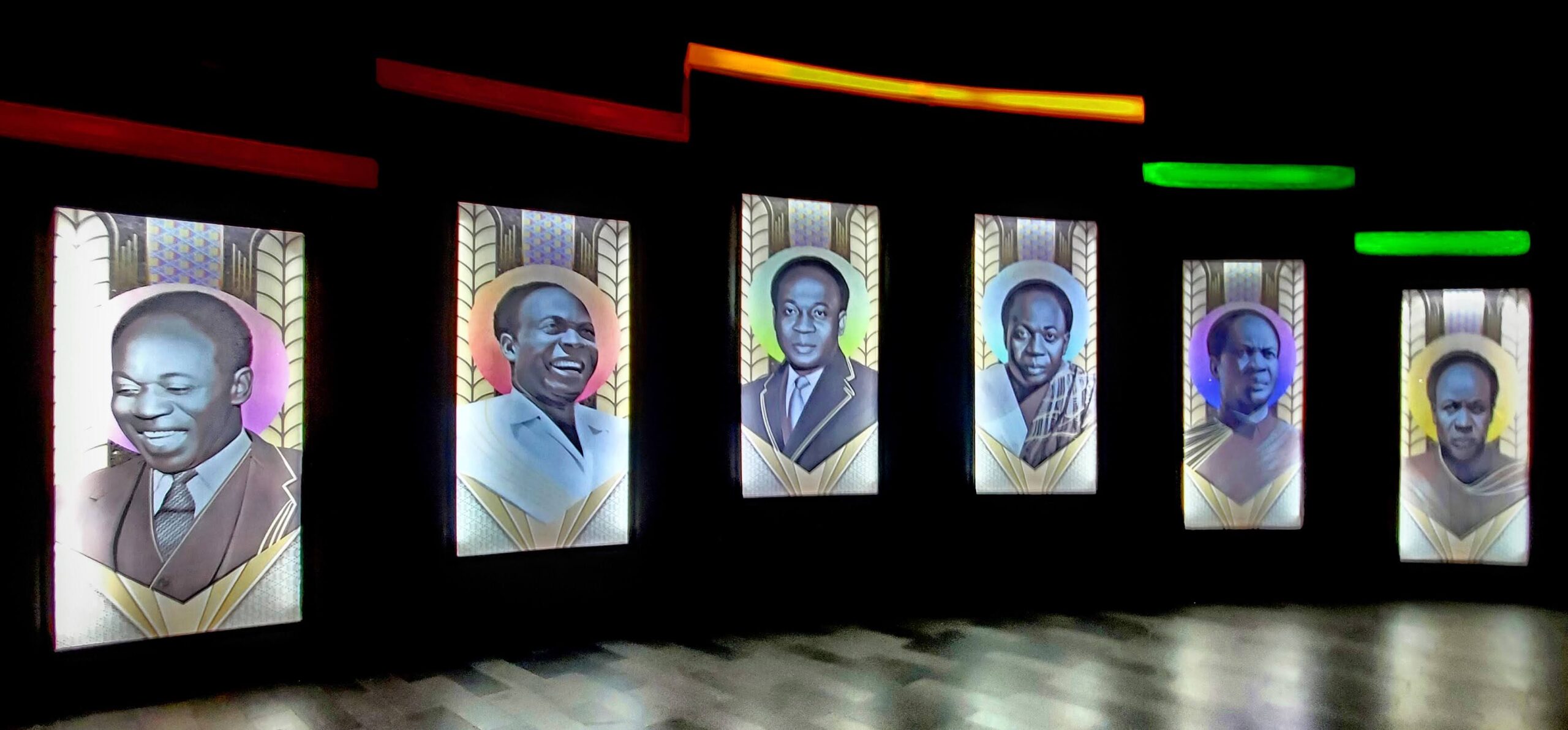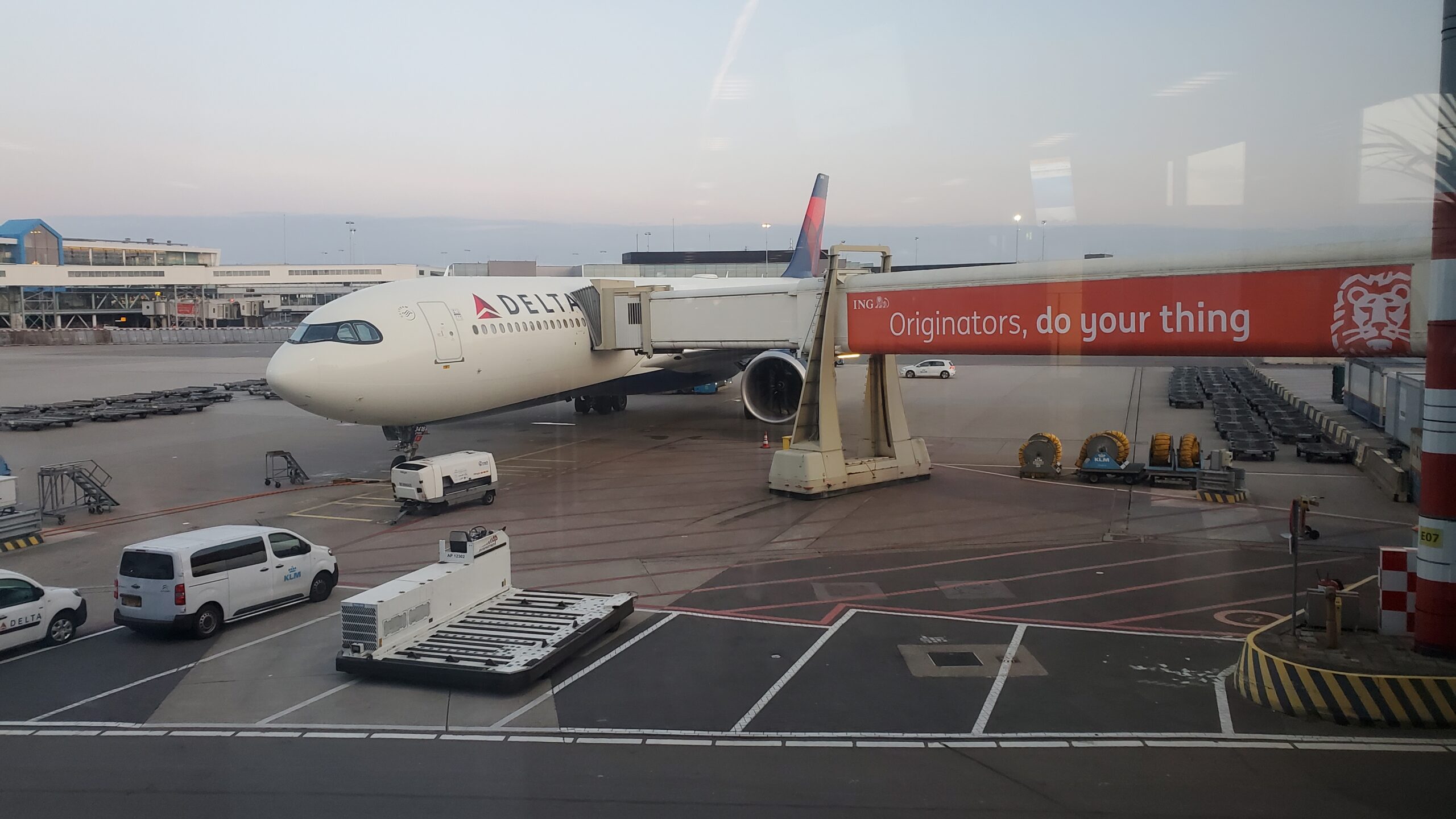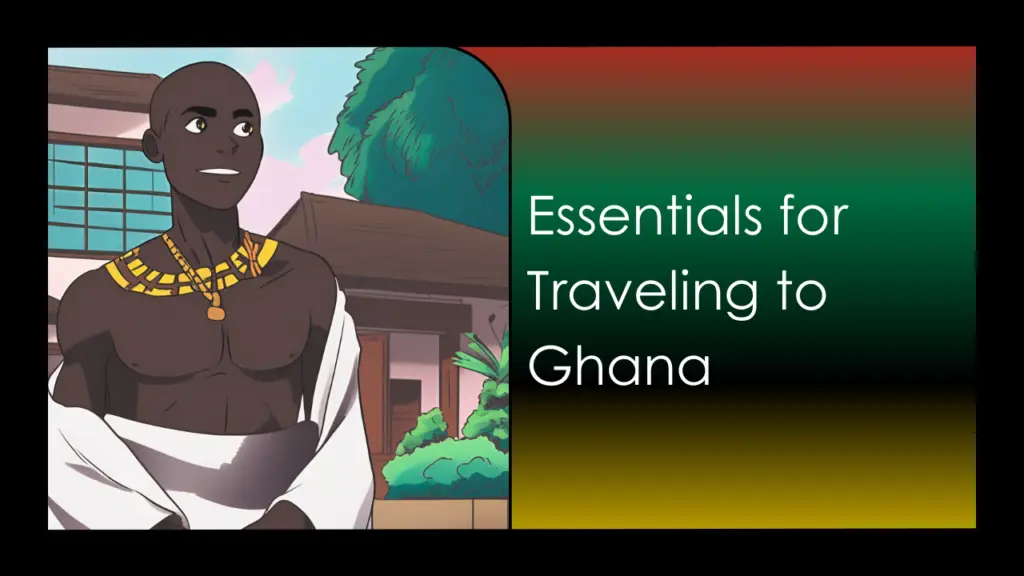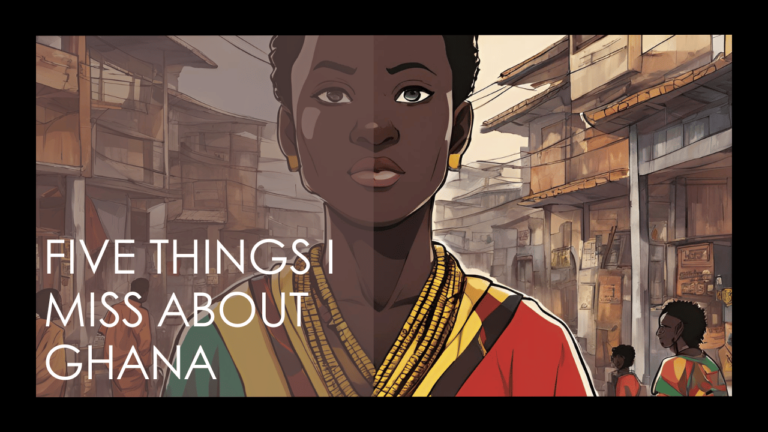Introduction

Traveling internationally can be daunting. I know it firsthand, especially when it’s a country you’ve never been to. Africa sometimes gets a bad rap, but I’m here to stand up for it and say it’s worth a visit when you get the chance. I’ve been to many spots in Africa, but the one place I know best is Ghana. Here are some tips to know before you go.
Things You Will Need
Passport
This is the most important part of your travels. Without it, you will not get far. Make sure to apply for your passport at least three months before your trip to ensure it arrives on time. I suggest applying even earlier because you will need to send the passport to a consulate to get a visa for Ghana. It takes 10-13 weeks to process a U.S. passport normally and 7-9 weeks for expedited processing. You never know what will happen during this process, so getting your passport as soon as you know you are traveling internationally is wise. Whether it be missed information, misinformation, or the passport just being lost in the mail. Fees vary from around $130 – $160, depending on your demographic. For more information on how to apply for a passport, visit the United States Department of State website.
Visa
If you are an American citizen visiting Ghana, you will need a visa. The application is online, and the details are below. There is a consulate in New York State and Washington D.C. I have never had personal experience with the New York consulate, but I assume the process is the same as the Washington D.C. one.
Washington D.C. Embassy: Visa Information
Some required documents:
- Completed visa application form
- Passport-sized photographs
- Proof of accommodation in Ghana
- Proof of sufficient funds
- Round-trip ticket or travel itinerary
Vaccinations
A yellow fever vaccination is required to enter Ghana. Other vaccinations are recommended but not required. I recommend talking to a travel nurse or your general practitioner. I was not aware of travel nurses until I started planning my journey, and they can be helpful if you are traveling to other countries as well. They will have all the information on any vaccine you may need depending on the country you are visiting and the diseases and viruses present. I received my yellow fever vaccine through Passport Health.
As of May 20th, 2023, all COVID restrictions have been lifted.
Medication
Malaria is very prevalent in Ghana but nothing to be worried about. I also recommend talking to a travel nurse or your general practitioner for this step and they can help prescribe the medication you need. The pills are somewhat pricey if insurance does not cover them. Since malaria is prevalent in Ghana, medication is sold in pharmacies that will be cheaper than buying it in the States. However, some malaria medication needs to be taken weeks before the actual trip.
Plane Ticket

You have to get there somehow. The only places in the United States that fly directly to Ghana that I know of are Washington and New York. Otherwise, be prepared to take a couple of flights to get there. Just make sure when booking your ticket that the layovers are not ridiculous. Ensure you have time to make it to your gate if you have a layover, and be wary of long layovers unless you genuinely want them.
Travel Insurance
Always recommended when traveling. You may want to consider it because you never know what will happen. Things like trip cancellations, lost luggage, or other issues are bound to happen if you travel long enough, and it’s good to know that you’ve got your back covered.
Important Documents
Print out hard copies of your passport and other important documents and keep them in a safe place. If you lose your passport, they can come in handy because there is a United States Embassy in Ghana.
Preparing for the Trip
Money, Exchange Rate
The local currency is the Ghanaian Cedi (GHS). As of June 7, 2023, the current exchange rate is one dollar ($1) equating to about 15 Cedis. This number fluctuates, so make sure to check the current rate before you head off on your own adventure.
If you need some local currency for immediate expenses upon arrival, you can get it at the airport. You can exchange money at banks or exchange bureaus throughout the country. Some black market money men may offer you an exchange deal, but it’s not as safe as going to a reputable bank or exchange bureau. Inform your bank about your travel plans to avoid your card being blocked.
Although Ghana is a cash-based society, some places will accept your card, mainly near the capital, gas stations, and some restaurants. Verify with your bank that your cards will work in Ghana and check for any international fees.
Hotels and Reservations
Just like in the States, you get what you pay for. If you are coming from the States, your flight will land in the capital of Ghana, which is Accra. There are some highly rated hotels around the airport, but they come at a high price, with some costing $200-$300 a night. As you leave the airport area, prices become more reasonable. I do not have any recommendations because I have never slept in a hotel in the country, but I will update this if I come across more information.
Another option is staying in a guest house. A guest house (also spelled “guesthouse”) is an accommodation where a traveler stays in a home hosted by a resident. Guest houses are typically less expensive, more personalized, and less formal than hotels. In some places, guest houses are the most common or only type of lodging available. (What is a Guest House?)
Time Change, Climate, and Metrics
Just be aware that they use the metric system in Ghana. The national language is English, so you will not have trouble reading signs or communicating. One thing I suggest is to slow down your speech and speak clearly. Although people do speak English, it is not everyone’s first language, and the English taught in the country is British English. Ghana has a tropical climate with mainly two seasons: wet and dry. During the wet season, the weather is typically rainy, hot, and humid, and during the dry season, it is still humid, just not as much. It is, however, still hot and very dusty in some areas due to the lack of rain.
Packing for the Trip
TSA Guidelines
Don’t let the TSA make your experience miserable. If you are unsure of what you can and cannot pack, the TSA website is your best friend. (TSA What Can I Bring?) Depending on the duration of your stay, you may or may not want to take advantage of the two-checked bag allowance that most airlines offer on international flights.
Phone and SIM Card
Make sure your phone is unlocked for your carrier. This can be done only if your phone is fully paid off and not under any type of contract. If you are unsure if your phone is locked, contact your carrier. If your phone is locked, talk to them about international roaming plans because if you’re not careful and take a call while abroad on your local carrier from the USA, you might get charged a hefty fee. If your phone is unlocked, I recommend purchasing a local SIM card. This can be done at the airport or various places throughout the country. Some of the major carriers in Ghana are MTN, Vodafone, Airtel, and Tigo. I recommend going with MTN or Vodafone (now Telecel).
Clothing
In Ghana, there are two seasons: wet and dry. The wet season starts around May and ends around November, and then comes the dry season. Both seasons are hot, and it does not snow in Ghana. Shorts and flowy fabrics are advised, along with short sleeve t-shirts and sandals.
Long-Haul Flight
Make sure to pack items for the long-haul flight. The flight will be at least eight hours long, and you want to be prepared so you do not suffer from boredom. I suggest downloading your favorite shows, podcasts, and music to get you through the flight. If you would like to keep it old school, pack a book and get some work done on a laptop. Pack an extra set of clothing and important items in a carry-on bag in case of lost luggage.
Power Adapter
Make sure you have the right power adapter for your electronic devices. Ghana uses Type D and G electrical outlets, the same ones used in many parts of Europe.
Conclusion
I hope this information helps you on your trip to Ghana. Hopefully, this covers a majority of questions you may have had. I hope this eases you into the idea of taking a trip to Ghana and if you are already leaning in that direction hopefully this document eases your mind just a little. Check out this checklist I made for a simplified version of this list that you can use to keep track of your very own travel preparations.
Stay tuned for more travel articles and content. I’d love to hear what you think and thanks for reading.




